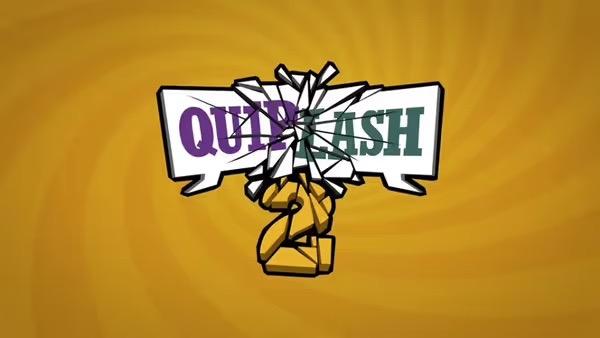During this critical play, I ran a few rounds of “Quiplash 2”, a party game developed by a Jackbox Games, with my friends via Discord. “Quiplash 2” is a party game designed for social gatherings and gaming nights with friends and family– usually 3-8 players. The game itself is available on various platforms, including PC, gaming consoles like PlayStation and Xbox, but individual players join using their own mobile devices. In “Quiplash 2,” players compete by answering prompts with humorous responses, then anonymously vote on their favorite answers. The player with the most votes wins the round. It’s all about quick thinking and creativity to come up with the funniest responses whilst on a time crunch. Overall, I argue that “Quiplash 2” leverages judging mechanics to foster fellowship and challenge “fun” through rewarding creativity and joint bonding over humor, allowing for a competitive and engaging dynamic between friends.
The core gameplay loop of this game is relatively simple– players are randomly given the prompt(s), where they must ideate a funny response within the given time. After the timer ends, the rest of the players are prompted to vote for the most humorous response. Players are rewarded based on number of votes, as well as if they beat the opposing response. Some rounds have you go head-to-head against another player, but other rounds allow you to rank a pool of everyone’s responses. This central judging mechanic leads way to a focus in fellowship and challenge aesthetics.
Firstly, the game pushes fellowship, evident through group voting. Players are able to laugh and bond over the humor, while bantering over which answer is better. I think a great example of this the fact that my friends and I were able to share laughter and bond despite being physically apart. The game’s judging mechanic facilitated lively discussions and interactions as we debated over the funniest responses. This shared experience of laughter and socialness strengthened our social bonds and made the gaming session highly enjoyable and memorable. For example, in the picture below, I immediately thought of Congress trying to get Tiktok to sell their company to an American one, so I busted out laughing and voted for the left hand one, though others enjoyed the right hand answer better. However, we were really able to understand each other’s different humor better, because we ended up having a 50-50 split. The judging mechanic really allows for everyone to have a say and share their own sense of humor and what they find funny with a larger group, overall pushing the fellowship type of “fun.”
[example of judging session]
Secondly, the judging mechanics in “Quiplash 2” also contribute to the challenge aesthetic by rewarding creativity and wit. Players are challenged to think quickly and come up with clever responses to the prompts, knowing that their answers will be judged by their peers. This creates a competitive dynamic where players strive to outdo each other with their humor and originality, adding an element of excitement and tension to the gameplay, especially with the time as a resource! Below is a picture of the point leaderboard at the end of the game. As you can see, players were rewarded based on the vote counts throughout the game. Allowing for people to judge each other and ultimately vote pushes a sense of challenge amongst players as they need to quickly be creative and deliver a funny response in time. I think an example of this creativity aspect being a big challenge is when two players couldn’t think of anything in time, so one had no response and the other wrote “idk.” This goes to show that under pressure to deliver a funny response, some people can often blank out, making this game competitive and challenging!
[point leaderboard screen]
In conclusion, in “Quiplash 2,” players compete by providing humorous responses to prompts and then anonymously voting on their favorite answers. This fosters fellowship through group voting and bonding over humor, even when physically apart. Additionally, the game’s judging mechanics reward creativity and wit, creating a competitive dynamic and challenging players to think quickly. Overall, “Quiplash 2” successfuly leverages the judging mechanic to promote social interaction and enhance group dynamics!





